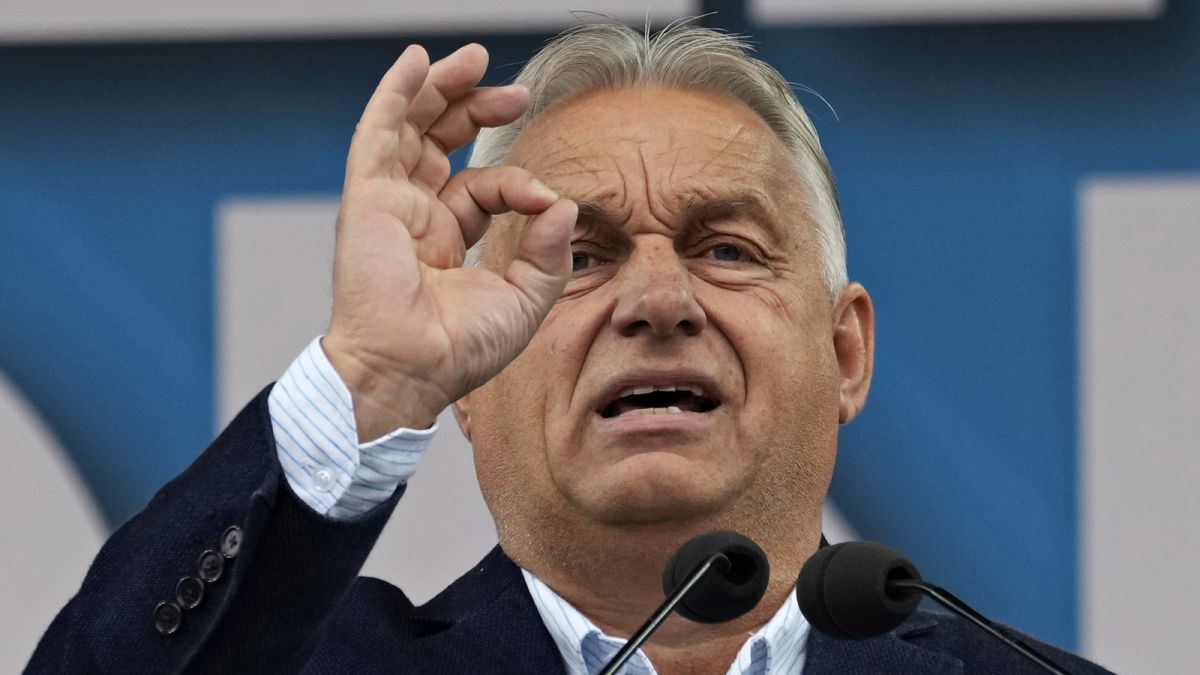A proposed reform of the European Peace Facility is being explored by European Union officials and diplomats to bypass Hungary’s veto on military assistance for Ukraine. The plan aims to make financial contributions to the EPF voluntary rather than mandatory, which is currently a source of frustration in Brussels due to a backlog of €6.6 billion. This tweak would relieve Hungary from contributing to the common fund, as Prime Minister Viktor Orbán has criticized the EU’s provisions of military equipment as a “pro-war policy.” The reform could potentially allow for the release of the blocked funds and strengthen support for Ukraine.
The switch from mandatory to voluntary contributions to the EPF is seen as a way to overcome Hungary’s veto and resume reimbursements under the current system. However, diplomats warn that this reform could set a dangerous precedent and weaken the EU’s united front against Russia, which has been based on a all-hands-on-deck philosophy. Some countries may find it challenging to sell a voluntary EPF to their national parliaments, raising concerns about cascading effects and budgetary issues for member states. The premature nature of the plan indicates that more internal reflections and negotiations are needed before a conclusion can be reached.
The Hungarian veto on military assistance for Ukraine dates back to May 2023 when Ukraine’s anti-corruption agency blacklisted Hungary’s OTP Bank as an “international sponsor of war.” This designation led to a spat between Budapest and Kyiv, with Brussels caught in the middle. Despite OTP Bank being removed from the blacklist, Hungary maintained its veto, demanding “unconditional” guarantees that a similar situation would not occur again. The continued blockage has resulted in a €6.6 billion backlog, which member states have sought to compensate with bilateral contributions to Kyiv.
High Representative Josep Borrell has expressed frustration over the impasse with Orbán, stating that he has “lost hope” for a resolution. Orbán’s controversial trip to Moscow in July was criticized as an act of disloyalty and appeasement towards Russia. The proposed reform of the EPF aims to find a way to release the blocked funds and provide support to Ukraine without Hungary’s mandatory contribution. However, the potential impacts of this reform on the EU’s stance against Russia and the willingness of member states to contribute voluntarily remain key considerations in the ongoing discussions.
In conclusion, the proposed reform of the European Peace Facility to make financial contributions voluntary aims to address the backlog of funds and bypass Hungary’s veto on military assistance for Ukraine. The switch from mandatory to voluntary contributions could potentially lead to the release of the blocked €6.6 billion and provide much-needed support to Ukraine. However, diplomats caution that such a reform may set a dangerous precedent and weaken the EU’s united front against Russia. The ongoing discussions and negotiations surrounding this proposal will require careful consideration of the potential impacts and implications for member states before a final decision can be reached.










